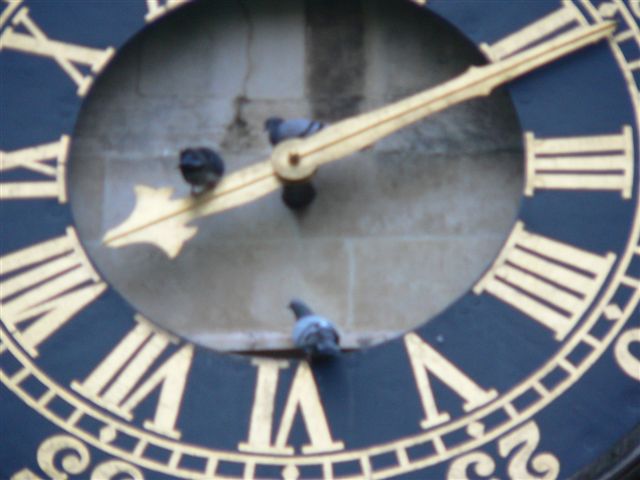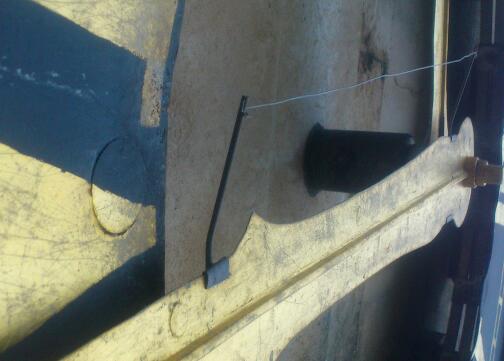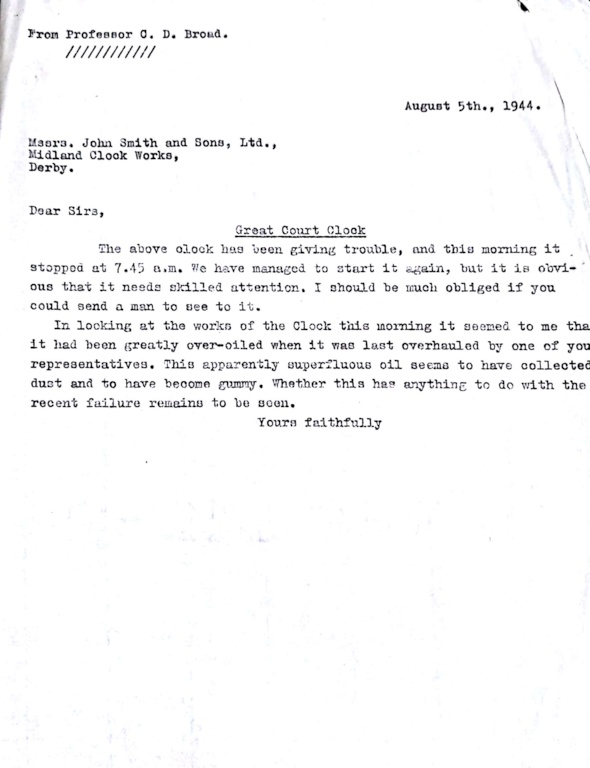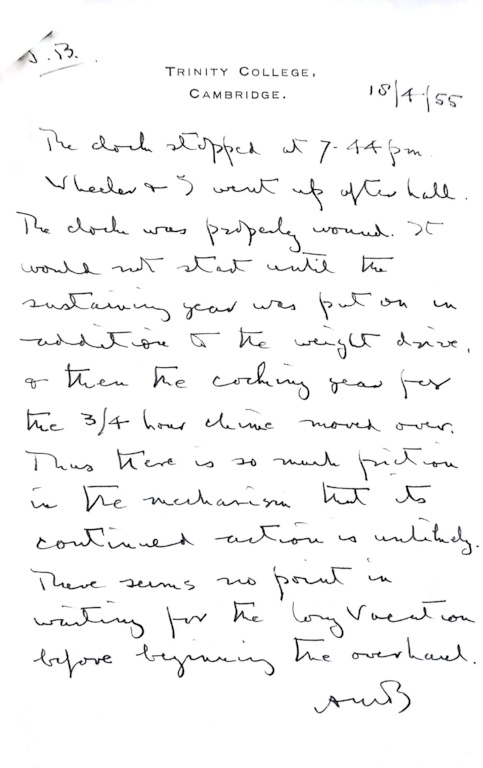
|
THE TRINITY CLOCK |

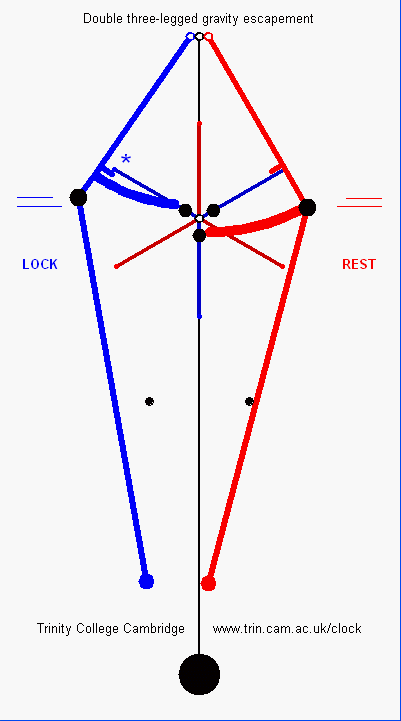
|
Pigeons
Glitches in clock performance always occur around hh:40 to hh:50 (when the minute hand is horizontal and rising) , and almost always in daylight hours.
The first recorded pigeon episode was in 1944, see below. The pigeons are present on the dial in large numbers especially when the sun is shining - a warm south-facing place to sit.
A quick calculation: suppose a pigeon weighing 0.5kg is sitting on the minute hand at a distance of 0.5m from the pivot, and so rising at about 1mm/sec.
It requires 5mW of power to lift it (force*velocity). Then the 80kg _going_ weight falling 9m in 7 days generates 12mW of power (again force*velocity).
So a power balance suggests that a couple of pigeons can easily stop the clock.
Here are some links to some recent clear pigeon events:
16 September 2010,
5 March 2010,
9 Jan 2010,
29 Dec 2009 and
8 Dec 2009
I think one reason for the extra power needed for tower clocks is that pigeons sometimes perch on the minute hand. These letters found in the archives of Trinity College Cambridge, decades ago, tell a nice story. In 1944 there was a problem put down to excessive oiling - the clock had stopped at 7.45am. And in 1955 the stoppage at 7.44pm was put down to "so much friction in the mechanism". On both occasions Smith of Derby were called in to do a thorough maintenance. No fault was found with the clock. Knowing what we know now the stoppages were caused by pigeons sitting on the minute hand. In Feb 2011 we fitted an anti-pigeon wire on the Trinity Clock and we haven't had a problem since. 
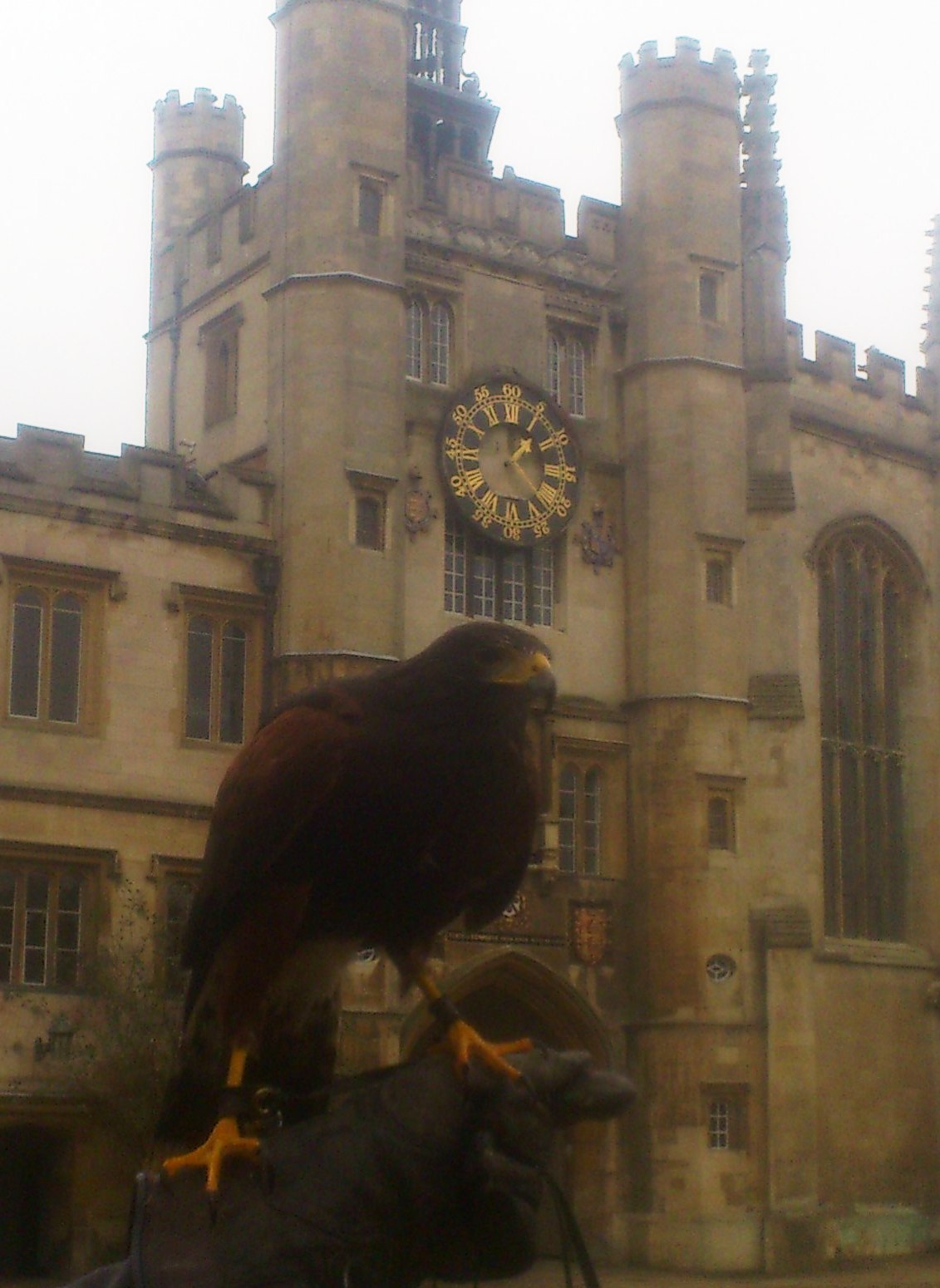

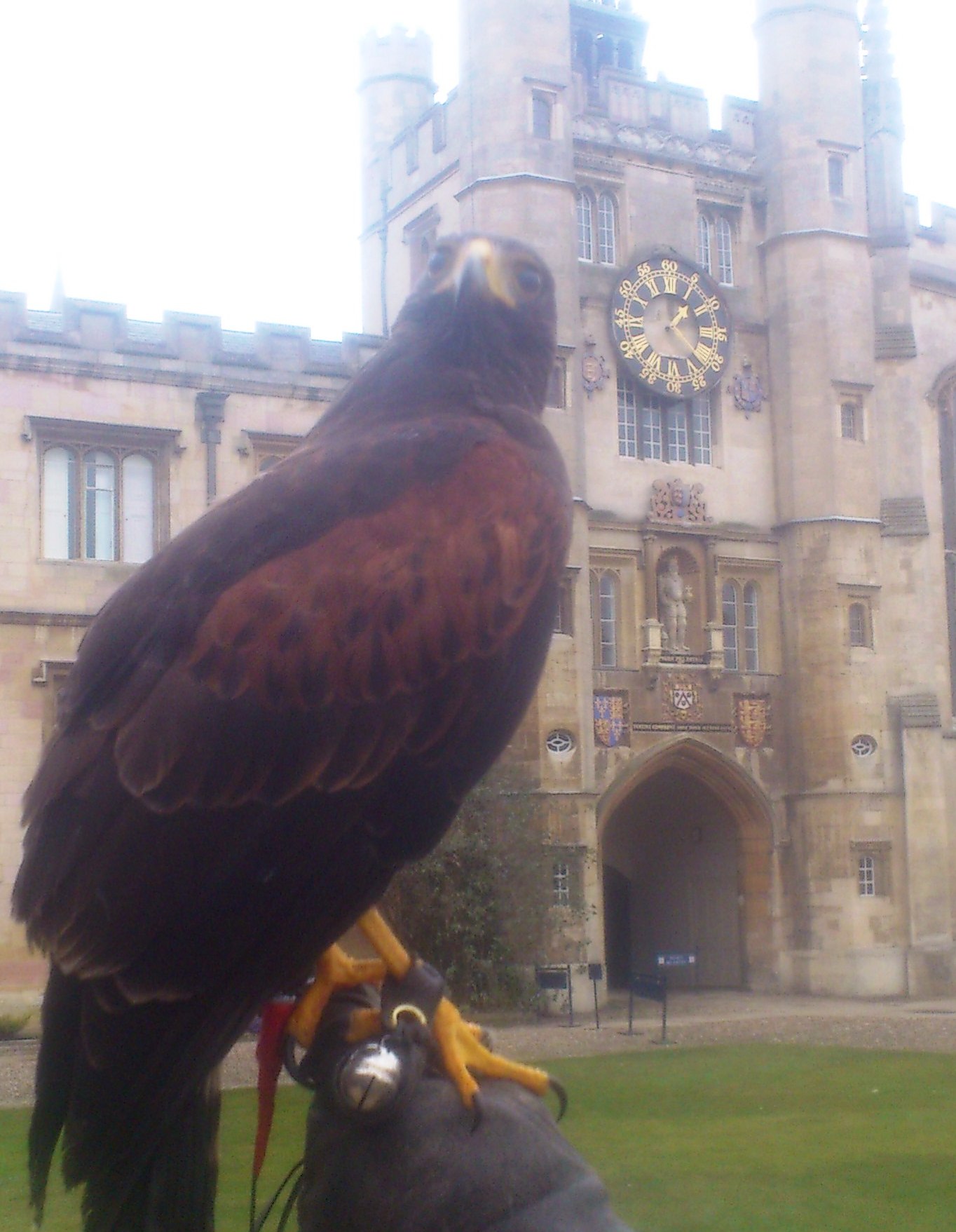
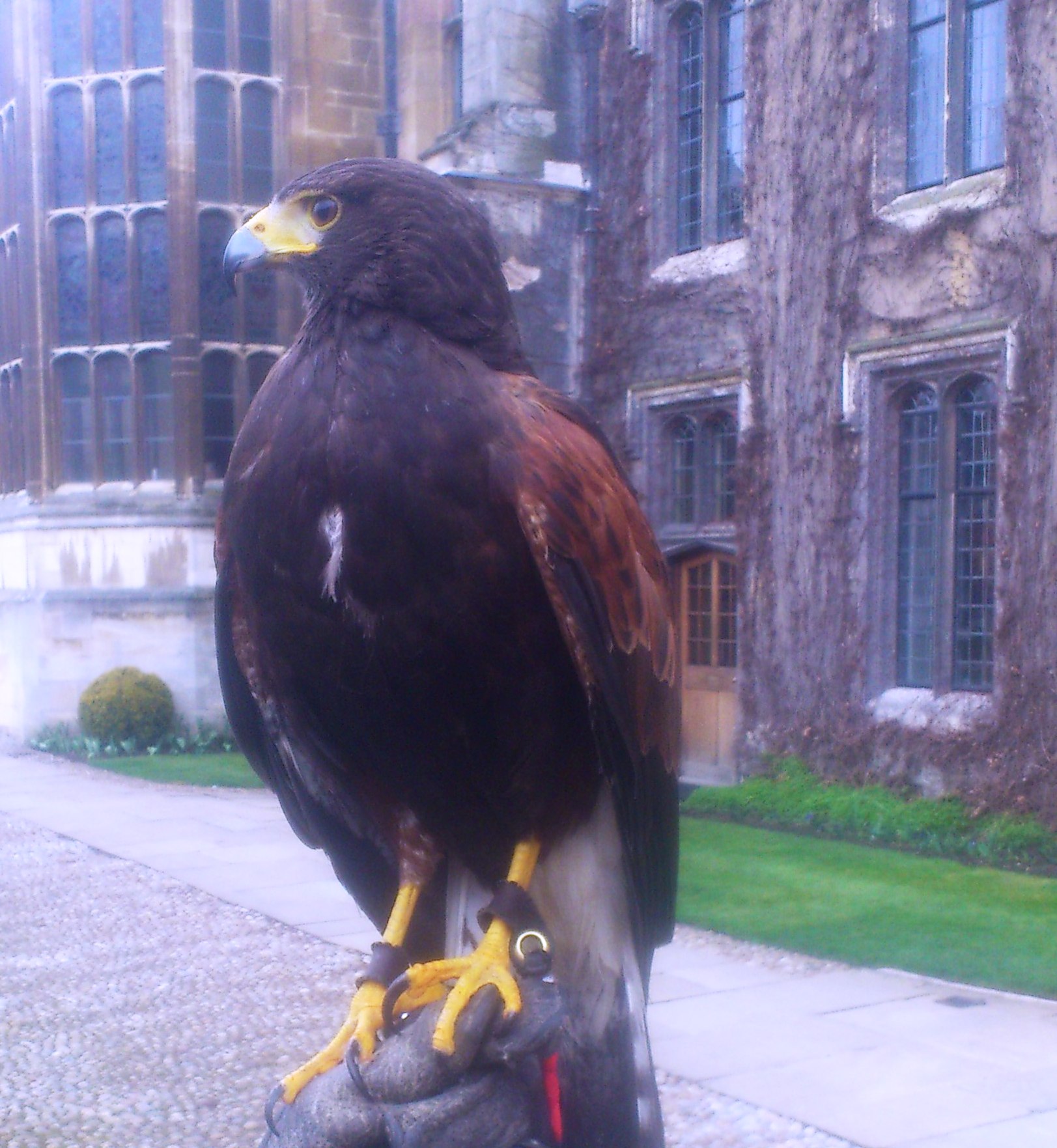 Harris Hawk - called Quinn - flies around once a week to keep the pigeons away. There's a local peregrin falcon that even scares the hawk!
Harris Hawk - called Quinn - flies around once a week to keep the pigeons away. There's a local peregrin falcon that even scares the hawk!
|
